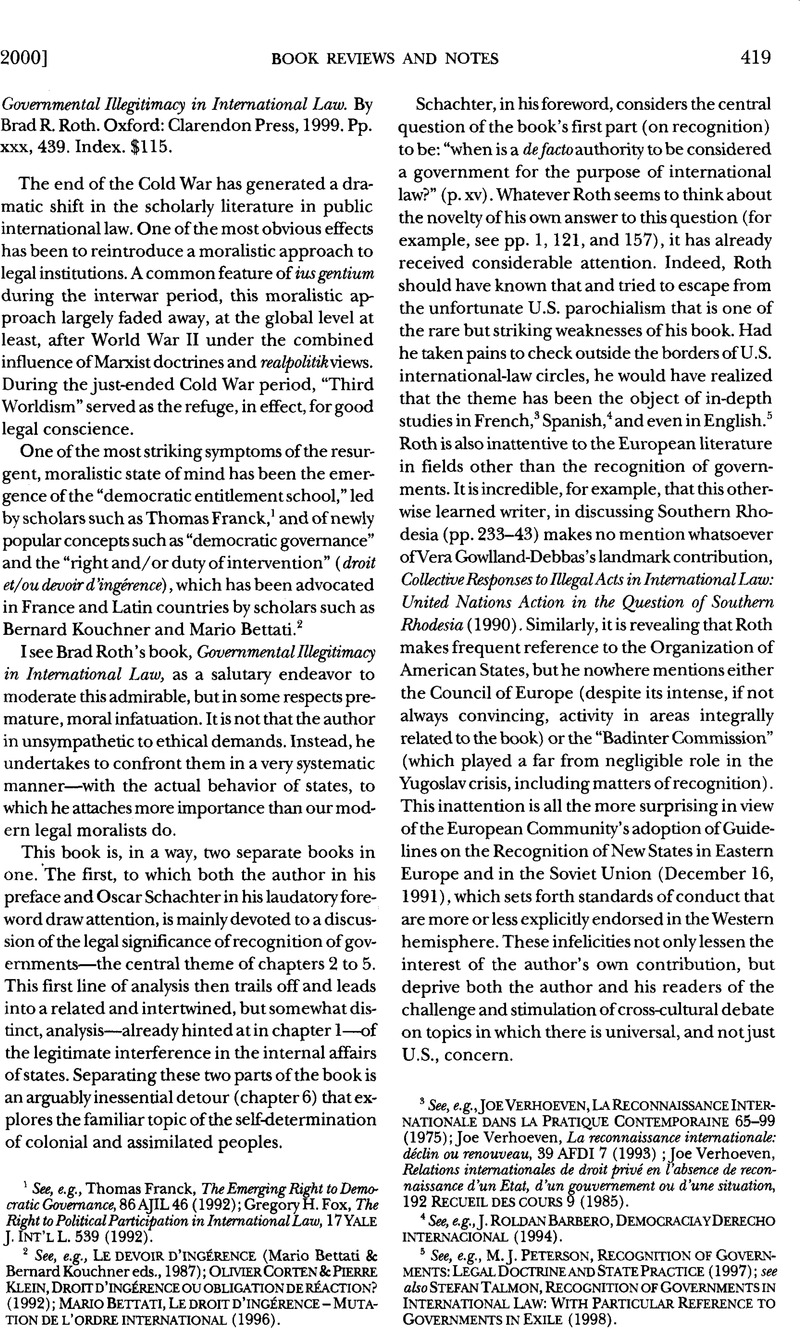No CrossRef data available.
Published online by Cambridge University Press: 27 February 2017

1 See, e.g., Thomas Franck, The Emerging Right to Democratic Governance, 86 AJIL 46 (1992); Gregory H. Fox, The Right to Political Participation in International Law, 17 Yale J. Int’l L. 539 (1992).
2 See, e.g., Le devoir D’ingérence (Mario Bettati & Bernard Kouchner eds., 1987); Olivier Corten & Pierre Klein, Droit D’ingérence ou obligation de Réaction? (1992); Mario Bettati, Le droit D’ingérence – Mutation de L’ordre international (1996).
3 See, e.g., Joe Verhoeven, La Reconnaissance Internationale dans la Pratique Contemporaine 65–99 (1975); Joe Verhoeven, La reconnaissance internationale: déclin ou renouveau, 39 AFDI 7 (1993); Joe Verhoeven, Relations internationales de droit privé en l’absence de reconnaissance d’un Etat, d’un gouvernement ou d’une situation, 192 Recueil des cours 9 (1985).
4 See, e.g., J. Roldan Barbero, Democraciay Derecho Internacional (1994).
5 See, e.g., M.J. Peterson, Recognition of Governments: Legal Doctrine and State Practice (1997); see also Stefan Talmon, Recognition of Governments in Exile (1998).
6 And of Carl Schmitt, whose abstruse maxim, “Sovereign is he who decides on the exception,” Political Theology: Four Chapters on the Concept of Sovereignty 5 (1985), Roth cites twice (pp. 63, 134).
7 Roth’s discussion here is frustrating for the reader. Instead of sketching out an answer concerning the rights of indigenous groups and minorities, he does little more than simply present the reader with “new challenges” relating to the principle of self-determination. Moreover, he devotes very little attention (four pages, 223–26) to the crucial issue of internal self-determination—that is, of providing the people of a sovereign state with the right to elect and remove from office its political leaders. See, e.g., Antonio Cassese, Self-Determination of Peoples: A Legal Reappraisal 101–40, 315–65 (1995).